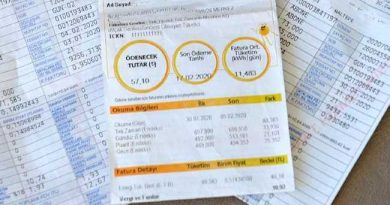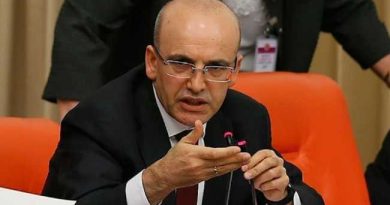NEWS SCAN for Turkey – June 22nd, 2013
Down below you will find a summary of topics from major Turkish papers and internet sites.
Turkish officials look for measures to ease markets
After financial markets badly affected by statements made by BERNARDE, Turkish officials have announced new measures to minimize the negative effects of the latest fluctuations in the markets. The measures cover a wide range from a series of foreign exchange sale tenders to new stimuli for a gold rush.
Commenting about the issue, Deputy PM BABACAN said during the fourth Istanbul Gold Summit on June 20th “If the people deposit their gold in banks instead of keeping it in their homes, the real value of Turkey’s reserves will appear high and the country’s risk perception from abroad will ease”.
It is reported that sector professionals believe “gold banking” will lead to a monetary expansion. Gold banking aims to bring gold kept at home into the economy in order to create a financial resource and reduce the current account deficit and gold imports, which is 200 tons annually. Some experts say “In case, people put the gold they keep at home into the economy, in other words if investors deposit gold at banks, then the banks will deposit this gold in the Central Bank as reserve requirements and withdraw their cash, which is deposited there with a 0 percent interest rate. As the banks can use this noninterest money, a monetary expansion will be provided”.
Berlin, Ankara trade protests in EU row
Germany and Turkey have summoned each other’s ambassadors, in the latest tit-for-tat in Ankara’s strained ties with the European Union, following Berlin’s reluctance to move forward with Turkey’s EU bid.
The German Foreign Ministry summoned Turkish ambassador Hüseyin Avni Karslıoğlu on June 21 in order to complain about EU Minister Egemen Bağış’s remarks, in which he said Germany’s resistance to opening a new chapter in EU accession talks was linked to Chancellor Angela Merkel’s “election campaign.” Ankara swiftly retaliated Berlin’s decision and hours later summoned German ambassador Eberhard Pohl to the Turkish Foreign Ministry.
“That is unacceptable,” German Foreign Ministry spokesman, Andreas Peschke, told reporters on June 21, referring to Bağış’s words. EU Minister Bağış said that if Chancellor Merkel was looking for material for her election campaign, it should not be Turkey, referring to the general election in Germany slated for September. “Those remarks met with great disbelief here. We will make our position abundantly clear,” Peschke said.
Turkey starts to see positive economic results from the peace process
It is reported that Turkey has started to see positive economic results from the peace process, especially in the eastern and southeastern provinces affected by the incentives system, adopted last year.
Economy Minister ÇAĞLAYAN said in Diyarbakır yesterday, “The number of certified subsidized investments has increased to 566 in these provinces in the first five months of 2013, from 310 in the same period last year. The number of new jobs has increased from 10,000 to 26,000, and the amount of fixed direct investments has risen fourfold to 8.1 billion Turkish Liras” .
Turkey had adopted a new geographical region and industry-based state incentive system on June 20, 2012, and the Economy Ministry selected Diyarbakır to announce the first annual economic results of the new system. Provinces are ranked in terms of social and economic development and are categorized in six groups in terms of incentive priority. The provinces in the sixth group, mostly consisting of poorer eastern and southeastern provinces, receive the most investment support
More urban women join the workforce in Turkey
The number of employed women in urban areas, excluding agricultural jobs, has reached 4.8 million, a 50 percent increase in six years. These women, whose total share in employment rates has reached 25 percent, are mostly employed in the service sector
The number of employed women in urban regions, which was 3.2 million in February 2008, rose to around 4.8 million in February 2013, an increase of over 1.5 million women employed.
Recent figures indicate that the growth in the number of employed women has sped up, while the gap between women and men is narrowing somewhat. When we leave aside the agricultural sector, the number of employed women, which was 3.2 million in February 2008, rose to around 4.8 million in February 2013, amounting to an approximately 50 percent increase within six years. We are talking about an increase of over 1.5 million women employed in urban areas within the last six years.
Markets settle but lira still weak after Fed announcement
Turkish and global markets settled down on Friday after the turbulence caused by US Federal Reserve Chairman Ben Bernanke’s admission that the central bank may be done with its monetary stimulus next year.
Turkey’s local currency was, however, not exempt from a lingering pressure and maintained its weak position against the US dollar on the week’s final trading day.
Shares traded on the Bourse İstanbul (BIST) gained slightly by around 1 percent at 73,647 points while the lira remained at 1.93 level against US dollar. The Turkish central bank’s seventh foreign exchange sale in two days was not enough to take the heat off US dollar. The greenback remained overvalued against the lira.
22.06.2013
SOURCE: MEDIA
We do not verify above stories neither do we vouch for their accuracy.





